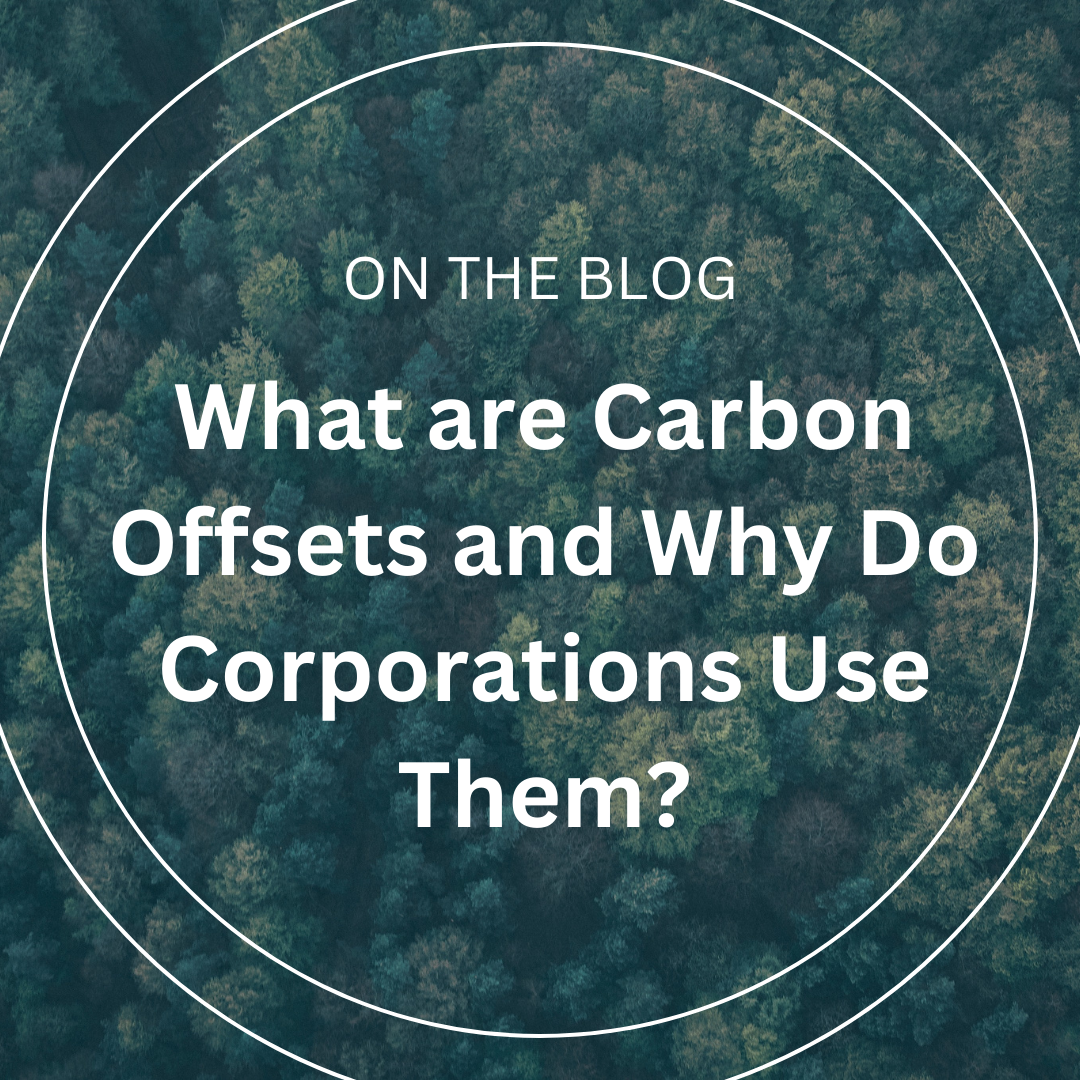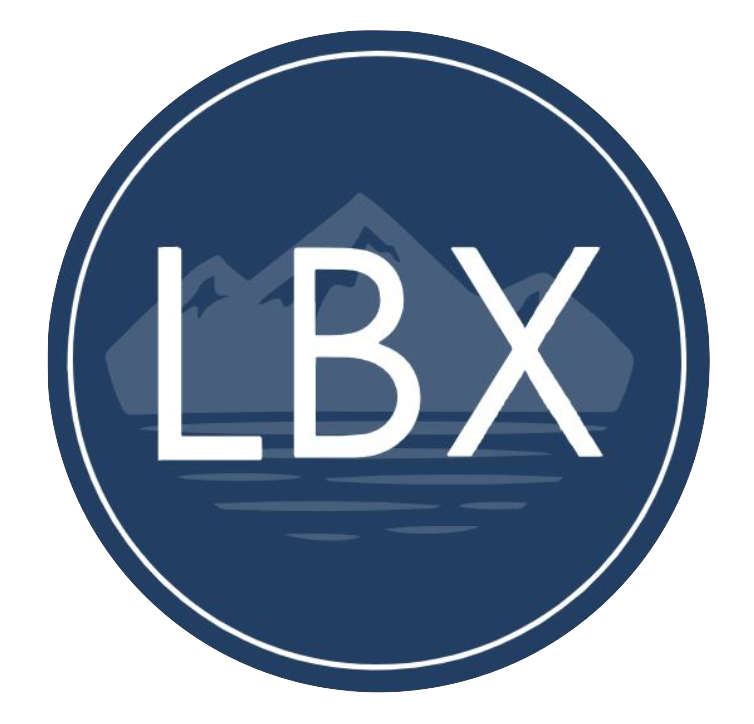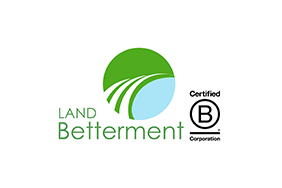What Are Carbon Offsets and Why Do Corporations Use Them?
By: The Land Betterment Exchange Editorial Team
Published 11-15-22
Submitted by Land Betterment Corporation

Supply and demand is an economic principle as old as market capitalism itself.
When one greatly outweighs the other, problems arise, and currently there is a big one brewing in the carbon offset market—demand has grown exponentially and supply simply cannot keep pace.
Fortunately, Land Betterment and Land Betterment Exchange (LBX) have found a novel and complete solution for current carbon offset market shortcomings: land remediation.
But let’s back up a bit. What are carbon offsets and why is it so difficult to make them verifiable, impactful, and scalable?
What are carbon offsets?
A carbon offset is a measured mitigation instrument to reduce a carbon footprint, utilized by businesses pledging to lower their greenhouse gas (GHG) emissions.
Carbon offset projects, then, are activities that reduce carbon emissions, increase carbon storage, and/or remove carbon from the atmosphere. The amount of atmospheric carbon reduction from a particular project can be calculated into metric tons of C02, which can then offset a portion of a company’s total carbon emissions.
Emissions result from business activities like manufacturing, travel, electricity consumption, and anything else that puts GHG into the atmosphere, whether directly by the organization or indirectly on its behalf. A fossil fuel-burning power plant that provides a company its electricity is a common example of indirect carbon impact.
Having totaled their CO2 emissions, organizations acquire carbon offsets to mitigate them—the good (carbon offset) balances out the bad (GHG emissions). With enough carbon offsets, an organization can achieve net-zero emissions even as they continue to emit GHG in their business operations.
But demand for carbon offsets is already outpacing supply, and this imbalance will only get worse. Consider a September 2022 report analyzing the global carbon offset market between 2018 and 2021, a period in which it increased 164% to a record high 760 billion euros. That’s more than three-quarters of a trillion euros and, as the report clearly documents, “This growth was mainly due to an increased demand for carbon permits, which culminated in surging prices.”
Demand will continue to increase dramatically as sustainability, corporate responsibility and ESG initiatives drive more organizations to make net-zero emissions pledges. The Taskforce on Scaling Voluntary Carbon Markets projects that the demand for carbon offsets will increase by a factor of 15 between now and 2030. By 2050, it will have increased by a factor of 100, all the way up to 13 gigatons of CO2.
All of that is great news for the planet and all of us living on it—more businesses want to offset their carbon footprint. Trouble is, the current supply side of the carbon offset market is woefully unprepared to meet this demand on two fronts: scalability and impact.
What are different types of carbon offsets?
Currently, most carbon offsets come from conservation projects—essentially paying landowners to pledge to not cut down forests. While we all should be invested in keeping as many living trees on this planet as possible, this type of carbon offset is neutral, meaning it does not restore anything but rather preserves what is already there.
There are two fundamental problems with this system. First, if a company is negatively impacting the environment with its GHG emissions, a neutral solution does not balance this out, only a positive one does. Think of it this way: -1 + 0 still equals -1, but -1 + 1 equals zero. That’s how you truly arrive at net-zero, whatever the current standard may be. Second, even if we could somehow account for this profound shortcoming, there are simply not enough forests left to preserve in order to meet proliferating carbon offset demand. And with many of these conservation sites in remote, hard to reach locations around the globe, impact is further difficult to verify.
There are other means of achieving impactful carbon offsets, of course. For example, an initiative in Sudan replaced wood-burning stoves with greener cooking technologies, improving quality of life, life expectancy, and the environment all at once. The trouble is, projects like these, while undeniably impactful, are not scalable.
In order to truly meet the coming carbon offset demand, we need a solution that is at once impactful and scalable.
How do LBX Carbon Offsets Work?
LBX has found that solution: land remediation and reforestation.
Unlike conservation, LBX’s carbon offsets generate a positive impact, rehabilitating an unhealthy environment into one that captures and stores carbon while also generating a whole host of collateral social benefits – such as jobs for the local US communities.
Here’s how it works: LBX matches sponsors with pre-approved US-based projects submitted by environmental specialists. Sponsors fund environmental work to complete the release of the environmental surety bonds. Once the project is deemed complete by a decentralized bench, verifiable carbon offsets and tokens are issued. All of this is tracked by blockchain. Ultimately, as $LBX continues to appreciate in value, land remediation it will become more viable inspiring what Land Betterment Exchange envisions as an “environmental gold rush”. This will incentivize and accelerate environmental action, and will also create a new demand for green labor—in regions transitioning away from fossil fuel jobs, a new, lucrative industry of land remediation will develop.
Learn More About Carbon Offsets and LBX
When demand outpaces supply, prices go up and some buyers are priced out of the market.
That’s a fact of capitalism, but it is untenable when it comes to environmental action. We simply cannot afford to leave people and businesses genuinely wanting to offset their carbon footprint without a meaningful means to do so.
LBX delivers environmental and social impact in a single ecosystem that produces scalable and meaningful carbon offsets. It not only addresses quantity, meeting mounting demand, but addresses quality, offering genuine verifiable environmental and social impact for areas facing tough transitions.

About Land Betterment Exchange - LBX
The Land Betterment Exchange (LBX) is a carbon offset exchange that creates a market to pull forward voluntary environmental cleanup and transition away from fossil fuels while providing sustainable jobs for the local community. The LBX process enables sponsors wanting carbon offsets to work toward achieving their sustainability objectives while simultaneously supporting American communities. The LBX issues highly valuable, traceable, and verifiable carbon offsets. LBX will work with sponsors to match them with projects that will be tracked using the LBX blockchain technology while also providing time-elapsed documentation, imagery, and videos of the property being remediated and revegetated. The Land Betterment Exchange's mission is to create workable solutions for the remediation of environmentally impacted areas while rebuilding and restoring communities. For more information visit www.thisislbx.com or connect with the Company on Facebook, Twitter, Instagram and LinkedIn.
About Land Betterment Corporation
Land Betterment Corporation, an Indiana Benefit Corporation and Pending B-Corp, is an environmental solutions company focused on fostering a positive impact through upcycling former coal mining sites to create sustainable community development and job creation. The Company utilizes a complete solution-based lifecycle program to restore and rehabilitate the environment and revitalize communities in need of change and opportunity. Land Betterment accomplishes this by identifying un-reclaimed, run-down and neglected coal mining sites, fixing the environment through reclamation and remediation, and then repurposing the land to support a sustainable business that serves the community. Land Betterment firmly believes that with real solutions it is possible for restoration of impacted areas to live side-by-side long term employment, while building sustainable and safe surroundings for communities and our planet. For more information visit landbetterment.com or connect with the Company on Facebook, Twitter, and LinkedIn
Special Note Regarding Forward-Looking Statements
This press release contains “forward-looking statements” within the meaning of the Private Securities Litigation Reform Act of 1995. Forward-looking statements involve known and unknown risks, uncertainties, and other important factors that could cause the Company’s actual results, performance, or achievements or industry results to differ materially from any future results, performance, or achievements expressed or implied by these forward-looking statements. These statements are subject to a number of risks and uncertainties, many of which are beyond Land Betterment Corporation’s control. The words “believes”, “may”, “will”, “should”, “would”, “could”, “continue”, “seeks”, “anticipates”, “plans”, “expects”, “intends”, “estimates”, or similar expressions are intended to identify forward-looking statements, although not all forward-looking statements contain such identifying words. Any forward-looking statements included in this press release are made only as of the date of this release. The Company does not undertake any obligation to update or supplement any forward-looking statements to reflect subsequent events or circumstances. The Company cannot assure you that the projected results or events will be achieved.
Company Contacts:
Mark LaVerghetta
317.537.0492 ext. 0
Chief Governance Officer, Corporate Finance
info@landbetterment.com
Stephanie Conzelman
207.205.0790
Stakeholder Engagement Director
info@landbetterment.com

Land Betterment Corporation
Land Betterment Corporation
Land Betterment Corporation, an Indiana Benefit Corporation and Certified B Corporation, is an environmental solutions company focused on fostering positive impact through up-cycling former coal mining and industrial sites to create sustainable community development and job creation. The Company utilizes a complete solution-based lifecycle program to restore and rehabilitate the environment and revitalize communities in need of change and opportunity. Land Betterment accomplishes this by identifying un-reclaimed, run-down and neglected coal mining sites, fixing the environment through reclamation and remediation, and then repurposing the land to support a sustainable business that serves the community. Land Betterment firmly believes that with real solutions it is possible for restoration of impacted areas to live side-by-side long term employment, while building sustainable and safe surroundings for communities and our planet.
More from Land Betterment Corporation

